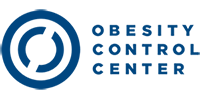This is an interesting and debatable topic
The different types of dairy that one might include in a diet include milk, cheese, yogurt, and cottage cheese.
The protein in these dairy foods is roughly 80 percent casein, and 20 percent whey. I’m sure you will recognize both of these as very high quality proteins, with casein having a relatively slow digestion rate, and whey a bit faster. They both contain a high amount of branched-chain amino acids, including leucine, an amino acid with a number of metabolic roles that is also the key trigger to protein synthesis in skeletal muscle.
Dairy foods are also a great source of calcium, which not only serves an important role in bone health but may also aid in fat loss (although the direct mechanism is not yet known).
So dairy foods definitely have a lot of good things going for them.
What are some of the negatives of dairy?
Lactose, the milk sugar found in dairy products, is probably the biggest downside. Some people simply can’t digest it very well, and some are allergic to it. Those that can’t digest it very well can take a lactase supplement to aid in digestion, but if you’re eating dairy, you’re still consuming calories (from the lactose) that in my opinion would be better “spent” elsewhere, such as on a higher quality complex carbohydrate like oats or rice.
When calories are limited, such as for a lap bander, you want to make sure you’re getting the most bang for your buck with the ones you do eat. In such an instance, I would rather consume whey protein and/or casein protein on their own, and get my carbs elsewhere. You’ll still be getting all the benefits of dairy (the great amino acid profile, the calcium, etc.) but without the “trash calories” from lactose.
For those looking to lean out but not looking to gain lean weight, foods like milk, cheese, and yogurt can definitely be part of the diet. Just remember to count the carbs, and take a lactase supplement if you have an issue with lactose tolerance.



